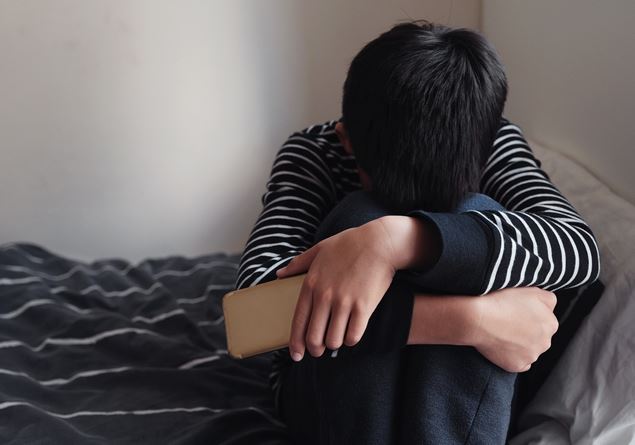Online security represents one of the main concerns about the Z generation, which is confronted with a complex and often dangerous digital reality. According to the latest investigation of the defense observatory of Terre des Hommes and uncomfortable, presented on the occasion of the Safer Internet Day 2025, More than half of young people perceive the Revenge Porn as the greatest risk on the webwhile the under 20s above all fear cyberbullying.
From the data collected on a sample of over 2,700 young people under 26 years it emerges that 58%consider the Revenge Porn the most feared threat online, followed by the alienation by real life (49%), harassment (47%) and cyberbullying (46%). However, the younger ones (under 20) identify the main danger in cyberbullying (52%), underlining how The dynamics of abuse and online humiliation are experienced with great intensity in adolescent contexts.
Despite the growing awareness on the dangers of the web, there is a risky behavior in the management of privacy: more than half of the interviewees declares to share their passwords with friends or partners. In addition, although 86% of the boys recognize the danger of sending intimate material, 12.5% do not know how to react in case of illegal diffusion or think they cannot do anything.
The analysis of the defenseless observatory highlights a generation that has experienced experiences of violence and which is able to recognize them, even in their thinner forms. 48% of young interviewees say they have undergone at least one episode of violencewith a prevalence of verbal and psychological violence (59.5%), catcalling (52%), bullying (43%) and sexual harassment (38.5%).
Statistics show how violence has very specific gender connotations: Catalling is immediately from 67% of girls and only 6% of boys. Sexual harassment affect 45% of young women and 18% of children. Bullying is more widespread among males (66%) than females (35%). Under 14 males are particularly exposed to bullying (89%)suggesting that school and peer groups are critical environments for this form of violence.
Non binary people are victims of all these forms of violence with worrying percentages: 50% say they have suffered catcalling and bullying, while 42% have experienced episodes of sexual harassment.
The effects of violence are profound and influence the psychological and social well -being of Gen Z. Among the main consequences reported by the interviewees we find: Loss of self -esteem and trust in others (63%); Social anxiety and panic attacks (36%); Insulation (25.5%); Depression (21%); Eating disorders (16%); Self -harm (10%); School difficulties and low concentration (12%)
While isolation is more widespread among the boys, women and non -binary people report a higher incidence of anxiety and panic attacks. The school remains the main place where young people experience episodes of violence (56.5%), followed by the road (48%) and the places of leisure (47%). The web also represents a dangerous environment, reported by 39% of interviewees.
Regulate the web: a request from the gen z
Faced with these alarming data, 70% of young people ask for a more severe web regulation to counter violence online. Although a minority (13%) remains skeptical about the effectiveness of new rules and 6% consider them a threat to freedom, most teenagers believe that more rigid measures can represent a concrete solution.
The institutions and associations are responding to this request with targeted initiatives. Terre des Hommes, together with the postal policehas signed a memorandum of understanding to combat violence online, while the uncomfortable community undertakes to promote the awareness and active participation of young people for the creation of safer digital spaces.
A positive aspect that emerged from the investigation is the willingness of young people to talk about their experiences of violence. Only 7.5% of teenagers say they wouldn’t talk about it with anyone, while 45% would trust with friends and 31% with parents. However, only 2.23% would turn to a teacher, highlighting the need for greater involvement of schools in psychological support and prevention.
The defenseless observatory will continue its awareness -raising work through meetings with students. On 12 and 13 February 2025 there will be two events dedicated to online security, respectively in Treviso and Milan, with the participation of experts in the sector and institutional representatives. These moments of comparison represent a precious opportunity to involve new generations and provide them with concrete tools to face digital challenges.
Generation Z proves aware of the pitfalls of the web and the different forms of violence that can undergo in daily life. However, this awareness alone is not enough: more stringent rules are needed, more in -depth digital education and greater psychological support for victims. The collaboration between institutions, schools, associations and young people is essential for building a safer and social environment of safer and social.










